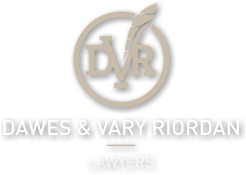Protecting your identity – new requirements to minimise fraud
Next time you visit your lawyer or conveyancer in connection with the sale, purchase, transfer or subdivision of property, to obtain advice about and sign guarantee documents or to collect title documents from safe custody, you will be asked to produce evidence of your identity.
New rules issued by the Registrar of Titles require lawyers and conveyancers to take reasonable steps to verify their client's identity before any dealing in land is lodged for registration. Lawyers are also obliged to verify your identity before giving advice on any guarantee document and before releasing title documents held in their safe custody systems.
Your lawyer or conveyancer will ask you to:
• attend a face-to-face interview; and
• produce original identification documents which meet the highest possible category of documents as described below.
If you are unable to attend a face-to-face interview with your lawyer or conveyancer to complete the verification of identity it is possible to attend an interview at some Australia Post outlets. There are also a number of identification agencies whose staff are able to meet you at a convenient location to verify your identity on behalf of your lawyer or conveyancer.
Categories of identification documents
The highest category of identification documents requires you to produce an Australian or foreign passport and an Australian drivers licence or photo card.
If you hold either a passport and a drivers' licence/photo card, but not both, then a full birth certificate will be required together with a Medicare, Centrelink or Department of Veterans' Affairs card. A birth extract is not sufficient.
If the name given in any of the documents is different to your current name as a result of marriage or other formal change of name, you will need to produce a full marriage certificate or change of name certificate. The marriage certificate must be that produced by the Department of Births, Deaths & Marriages rather than the certificate you receive from the person who officiates at your wedding.
If you do not hold the identification documents described above, there are a number of alternative methods of establishing your identity to meet the new requirements. For example, it may be necessary for a third party to make a statutory declaration as to your identity – that third party is then required to produce his or her own identity documents for verification. Your lawyer or conveyancer will discuss these alternatives with you.
Applying for certificates early
Don't be surprised if your lawyer or conveyancer discusses these requirements with you soon after your first contact with them – once they have established which identity documents you currently hold, they may ask you to apply for birth, marriage or change of name certificates from the Department of Births, Deaths & Marriages in order to ensure that a verification of your identity can be carried out prior to settlement of your property transaction.
A verification of your identity by your lawyer or conveyancer can be relied upon by that person or firm for 2 years after it was completed so any further transactions conducted in that period will be covered by the initial verification. However, if you deal with multiple firms of lawyers or conveyancers, you will be asked to complete verification of identity with each firm.



